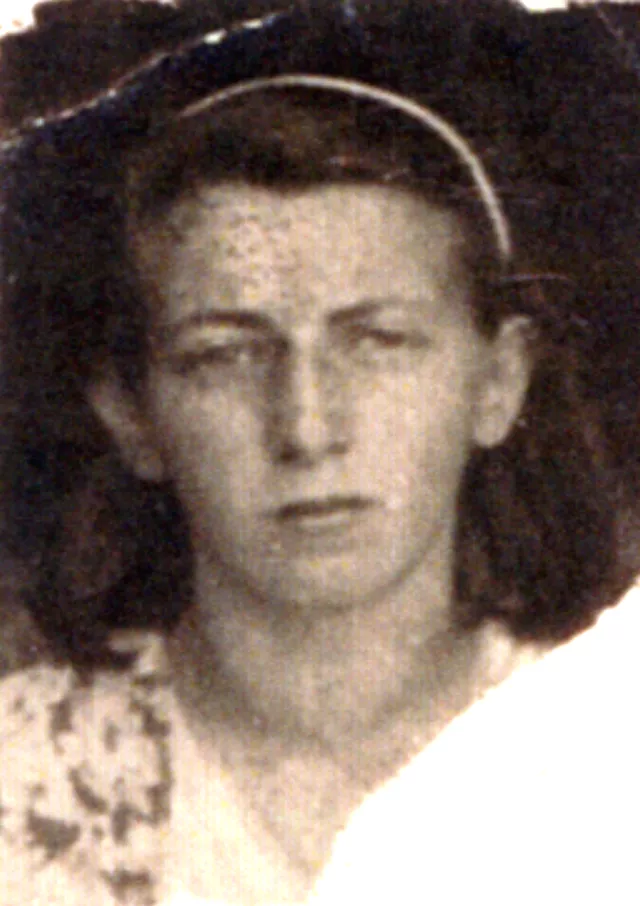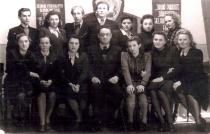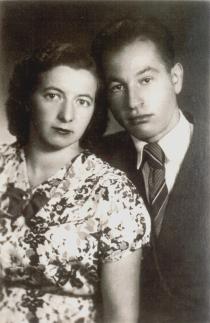This is me, photographed for my passport. This photo was taken in evacuation in Andijon in 1943. I'm wearing my aunt's gown, and the photographer gave me a ribbon for my hair.
Germany attacked the Soviet Union on Sunday, 22nd June 1941, and the Great Patriotic War began. My parents decided to leave on foot. We covered about 200 km and were exhausted. On our way we were given a lift on a Soviet military truck. We drove as far as Lokno station, Pskov region, where we got off. We knew those Soviet army soldiers rescued us and it was a miracle! We arrived at Pogiblovka village, Nizhniy Novgorod region. Eight families from Ludza happened to stay in this village. Our family was accommodated in a local house. The locals treated us well.
We had no warm clothes with us. We were horrified to think about winter. We also realized that if the Germans advanced, none of us would survive. One Jewish family moved to Central Asia where they didn’t need winter clothes. They wrote us from there convincing us to join them. The remaining families headed to Central Asia. We were accommodated in Andijon region, Uzbekistan. This was a Muslim town. We worked in the local cotton growing collective farm. Each employee was paid with one flat bread for a day’s work. The locals treated us nastily. Mama told us we had to get out of there while we were still alive. She found the first family that left Pogiblovka in Andijon, and we went there. Fortunately, the spinning shop owner hired Mama and me to work night shifts. We starved, but actually, all those in evacuation were in a similar situation. I turned 16 in Andijon and received my first passport. Mama was very concerned about my having to work instead of going to school.
In spring 1942 my father died from dystrophy. Mama was also exhausted and could not go to work. She had trophic ulcers and unhealing sores on her skin. Our acquaintance helped me to get a job at the silkworm factory. Every day the walk to the factory was more and more difficult. I was almost fainting from starvation. A miracle rescued us.
My father’s sister Taube was in Topory, Kirov region. Mama wrote her, and my aunt replied that she was waiting for us. Mama and I went there immediately. My aunt was staying with our distant relatives working in the hospital. They were working and received food cards. They were scared seeing how exhausted and starved we were. Mama knitted clothes. Her customers were women in evacuation. They paid her with flour, cereals and butter. Having a better command of English, I went to work as assistant accountant at the fish factory. Employees were paid their wages in fish. I received a room in the office building and was also given a plot of land. Mama moved in with me. We learned gardening, planted potatoes and had good crops. I fetched water from the river. The factory also provided wood to its workers. I received fish every week and we were also given bread cards. Mama’s knitting provided additional food. We didn’t starve any longer.

















